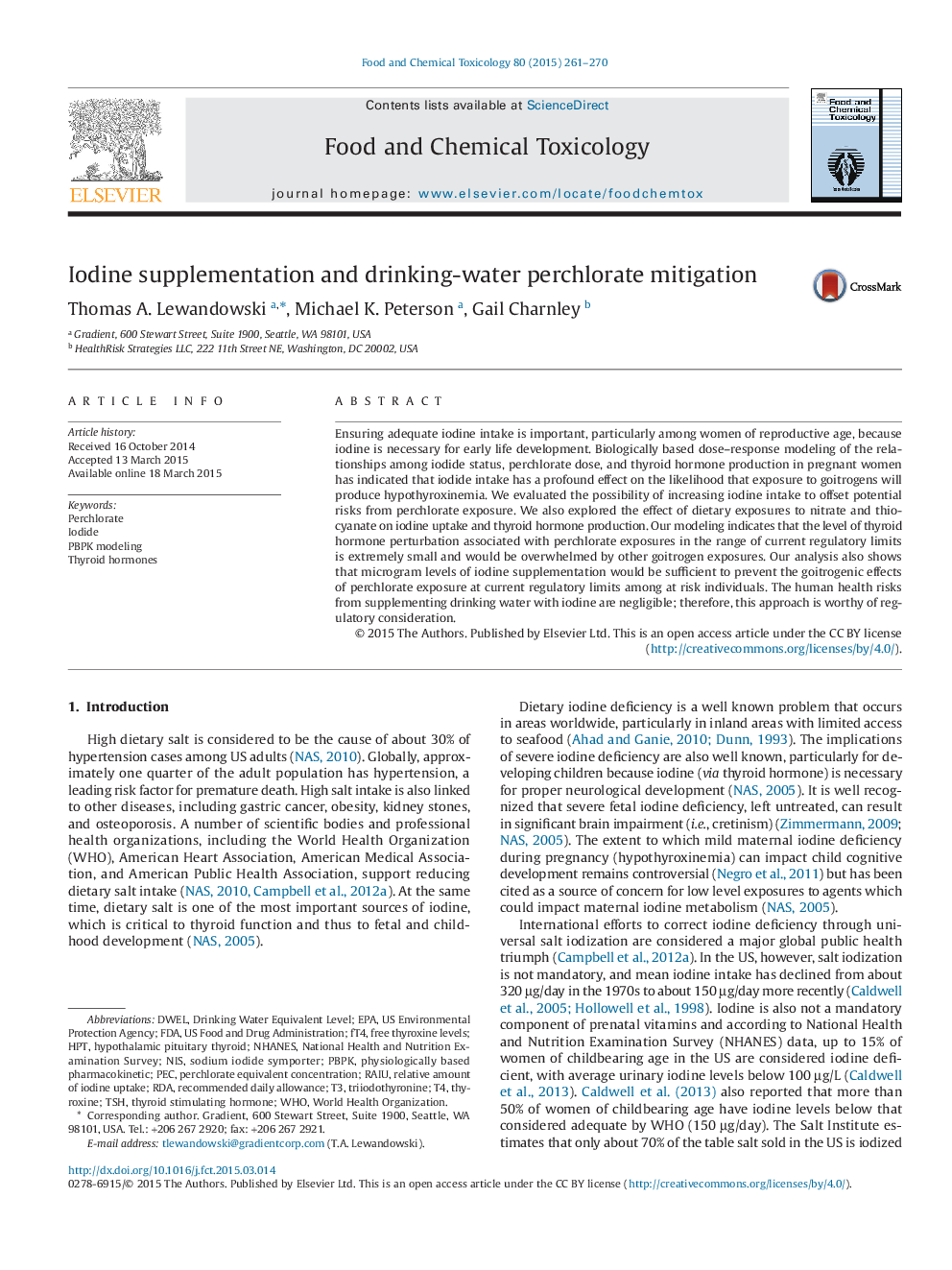| Article ID | Journal | Published Year | Pages | File Type |
|---|---|---|---|---|
| 5849827 | Food and Chemical Toxicology | 2015 | 10 Pages |
Abstract
Ensuring adequate iodine intake is important, particularly among women of reproductive age, because iodine is necessary for early life development. Biologically based dose-response modeling of the relationships among iodide status, perchlorate dose, and thyroid hormone production in pregnant women has indicated that iodide intake has a profound effect on the likelihood that exposure to goitrogens will produce hypothyroxinemia. We evaluated the possibility of increasing iodine intake to offset potential risks from perchlorate exposure. We also explored the effect of dietary exposures to nitrate and thiocyanate on iodine uptake and thyroid hormone production. Our modeling indicates that the level of thyroid hormone perturbation associated with perchlorate exposures in the range of current regulatory limits is extremely small and would be overwhelmed by other goitrogen exposures. Our analysis also shows that microgram levels of iodine supplementation would be sufficient to prevent the goitrogenic effects of perchlorate exposure at current regulatory limits among at risk individuals. The human health risks from supplementing drinking water with iodine are negligible; therefore, this approach is worthy of regulatory consideration.
Keywords
NHANESRAIUFT4TSHPBPKhptRDAPECFDAEPANiSUS Environmental Protection AgencyUS Food and Drug AdministrationNational Health and Nutrition Examination SurveyTriiodothyroninerecommended daily allowancethyroxineWorld Health Organizationsodium iodide symporterPhysiologically based pharmacokineticPBPK modelingthyroid stimulating hormoneThyroid hormonesPerchlorateWHOIodide
Related Topics
Life Sciences
Agricultural and Biological Sciences
Food Science
Authors
Thomas A. Lewandowski, Michael K. Peterson, Gail Charnley,
